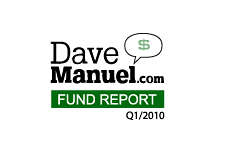Using Arbitrage To Make Money in the Stock Market is Not As Easy as It Sounds
 On the surface, "merger arbitrage" or "risk arbitrage" would seem like easy money. One company has announced that it will be buying another company for $11 per share, and the company that is being acquired is only trading at $9.75. Surely that is as easy as it gets right? Just buy the company that is being bought for $11 at $9.75 and you are guaranteed to make $1.25 per share. A slam dunk trade right?
On the surface, "merger arbitrage" or "risk arbitrage" would seem like easy money. One company has announced that it will be buying another company for $11 per share, and the company that is being acquired is only trading at $9.75. Surely that is as easy as it gets right? Just buy the company that is being bought for $11 at $9.75 and you are guaranteed to make $1.25 per share. A slam dunk trade right?The basic premise of true arbitrage is taking advantage of price inefficiencies to book an immediate profit. In a true arbitrage situation, you have no risk and a guaranteed profit. Buy something for $7 and immediately sell it for $7.50. That's true arbitrage.
"Merger arbitrage" is not nearly this simple, and therefore is not a true arbitrage play. Let's go back to the example that I talked about earlier. Let's say that a small company, XYZ, is trading at $5.50. A big company, ABC, comes along and offers $11 per share for XYZ. The stock spikes, and then settles back and trades at around $9.75. That doesn't make sense, you may wonder. Why is the small stock trading at $9.75 when there is a guaranteed offer on the table for $11?
There can be many different reasons for this. You need to first understand that there are many smart people trading the stock market, so if a stock is trading at $9.75 and there is an $11 offer out on the company, you need to ask yourself why. A few reasons for this might be:
1. The deal is a conditional deal, dependent on certain guidelines being met.
2. The deal could be halted due to antitrust concerns.
3. The deal is not expected to close for a long while.
4. The deal is not expected to be accepted by shareholders.
5. There are clauses in the deal that allow the acquiring company to pull out if the smaller company's financials deteriorate.
Here is the Catch 22. If you buy the company at $9.75, you are taking on a tremendous amount of risk. What happens if the deal doesn't go through? The smaller company will likely crater and trade near the price it was trading at before it was acquired. That would be an almost 50% loss, overnight. You may end up making $11 per share; but how long will it take for the deal to go through? Might your money be better placed somewhere else, where there is less risk involved?
On the other hand, in the case of the slam dunk "arbitrage" plays where there is hardly any risk (deal has passed through antitrust regulators, shareholders have accepted the deal, etc.) there is basically no money to be made. If the stock was now trading at $10.94 and was going to be acquired at $11 (for sure) .. would it really be worth buying the shares at this point?
In the cases where you have the potential to bank truly substantial profits trading "arbitrage" plays, the risk usually far outweighs the rewards. Sure, you might bank $1 per share, but you could just as easily lose $4 per share if the deal goes south. That is not the risk/reward profile that we are looking for. If you think that you have found an incredible instance of value in a company that is being acquired, you need to research and found out why the stock is trading at such as discount to the purchase price.
Arbitrage trading is not as easy as it looks, and you need to tread carefully if you are planning on venturing into this style of investing.
Filed under: Stock Market Education | General Knowledge



